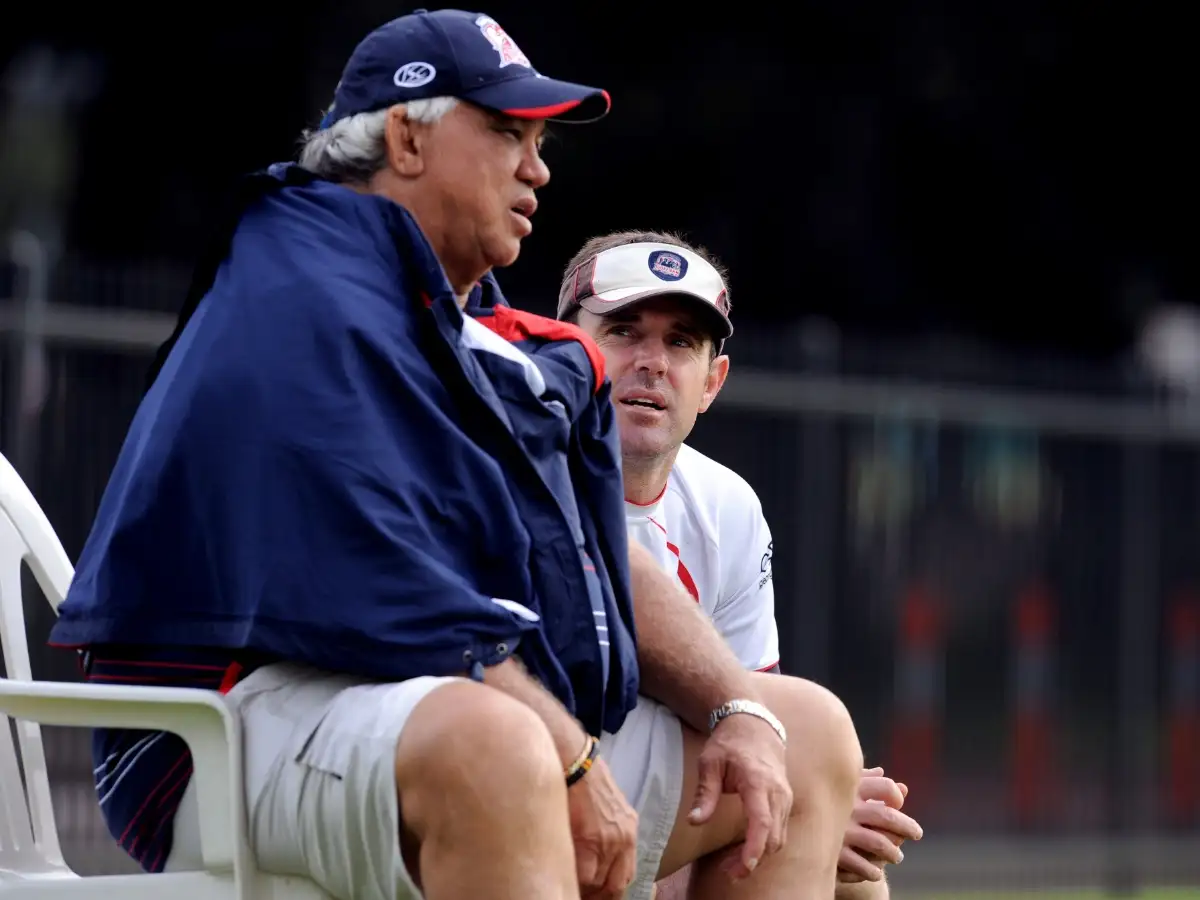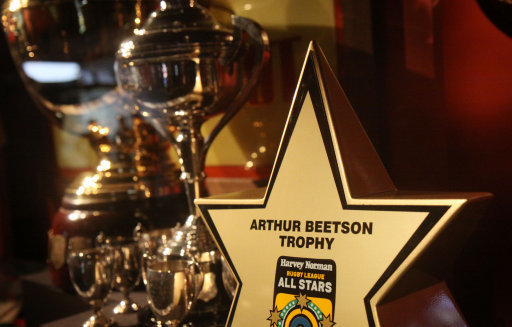In depth: Arthur Beetson, the first Indigenous Australian to captain his country

In its long and cultured history on both sides of the world, the sport of rugby league has seen some legendary characters grace the turf. However, maybe no more so then that of this man.
Despite not being the most prolific in his stellar 17-year career, Beetson still stood out above the pack as one of the leading prop forwards of his time and maybe even in the history of the game. Even with a career that was hampered now and again by injuries, his style of play was unlike any front rower at the time. The indigenous Australian’s influence amongst the game is still spoken about today, with his uncharacteristic speed and exceptional ball handling skills arguably changing the way the game was played. Now, in tribute to the man himself we add another to the in-depth series, focusing in on one of the games’ most influential players……

Born in Roma, Queensland, Beetson’s exceptional ball handling skills in the front pack were honed during his younger years as a five eighth for local club, Roma Cities. However, the big lights of Brisbane were not far off as by 1964, the 19-year-old signed for Brisbane rugby league side Redcliffe. In just the one season, he had already showcased himself as a top prospect by claiming the sides’ player of the year award alongside winning the Brisbane rugby league premiership.
A move to New South Wales side, Balmain would follow in 1966 where he began to make an even bigger impression. Another grand final appearance came with it and even despite defeat against a formidable St. George team, the unorthodox forward was showing signs he could be a true force in the game. It was so much so that debuts for both New South Wales and Australia came in the same year along with two tries for the latter against England in that first game.
The 1968 season saw Beetson achieve one of his greatest feats despite only four years of being in the game after representing Australia in 1968 Rugby League World Cup. The fourth staging of the event only consisted of four teams (Australia, New Zealand, Great Britain and France), but was a tournament that the Kangaroos dominated from start to finish. The Australian team went undefeated during the tournament and rounded out a resounding display with a 20-2 victory over France in the final.
After five seasons with Balmain, he went on to join Eastern Suburbs (now the Sydney Roosters) in time for the 1971 NSWRFL season. What followed was some of Beetson’s greatest domestic success as Eastern Suburbs became a side to be feared during the early stages of the 1970s.
During his early years at Redcliffe and Balmain he developed a certain reputation of perceived laziness and maybe on occasions a bit of a hothead as he even missed out on Balmain’s 1969 grand final due to suspension. However, despite the criticism and negativity that can easily affect a player’s morale or ability, the magnetic character did not seem fazed. After being trusted with the captaincy whilst at the Roosters, the big man completed a transformation from said ‘lazy forward’ to influential leader as he quashed any doubt towards his ability and work rate on the field as he terrifically led the Easts to consecutive Premiership victories in 1974 and 1975.
The Eastern Suburbs side of the early to mid-70s evidently led the way and his signing and appointment as captain proved to be just what the Roosters needed, claiming their first Premiership wins since 1945. The playmaking front rower’s traits as a former back certainly seemed more obvious during his time at the Roosters. For such a big man, he showcased a surprising turn of speed and exceptional ball handling skills that were so uncharacteristic of prop forwards at the time. A skillset so influential that the qualities he possessed are now more central and valuable to a props game as the years have gone on.
After his most successful stint in rugby league, Beetson saw out his career with Parramatta before a hero’s return to Queensland and one final year with his former side Redcliffe. By 1980, his 17-years in the game had most certainly endured its highs and lows but the big man’s career came full circle when he was selected as captain for Queensland in the inaugural 1980 State of Origin match.
Towards the end of his career it was more apparent that his time in the sport laid beyond that of the field but also within coaching. The leadership that was so highly valued during his time with Eastern Suburbs translated onto coaching roles that began before he could even hang up his boots. During the latter stages of his stint with the Easts he took up a role as head coach before doing the same again during his last spell at Redcliffe.
A great career and a true inspirational tale came to an end in 1981 after his last spell with Redcliffe and afterwards, ‘Big Artie’ went into coaching full time with his first stop none other than the Queensland representative side. Between 1981 and 1984 he won seven games out of 10 and claimed three State of Origin series wins as coach of the Maroons. A return to Eastern Suburbs would follow in 1985 and in three seasons between 1985 and 1988, Beetson coached the Roosters to 42 wins in 97 games to go with being named the Coach of the Year in 1987.
It would not be enough to just speak of his exceptional and transformative playing career, it is the legacy that the tough and gritty prop forward left behind that will always be remembered outside and also within the echelons of rugby league. He paved the way for a younger generation of aborigine Australians not just in sport but throughout life, calling for a higher quality of learning for Indigenous children. An absorbent personality and one of the games’ greatest characters left behind a legacy that certainly still lives on today. The ARTIE Academy (Achieving results through Indigenous education) was formed in 2010 in honour of the Australian great. A proud man who stood resolute in his beliefs for future generations of indigenous children to be properly educated and find employment and the program sets out to do just that.
There is not much more that could be said of the man. From heavily critiqued forward to an exceptional and influential leader, he remains one of the rarest talents and biggest characters that the game has seen in its lifetime. A cultural icon and a true inspiration.